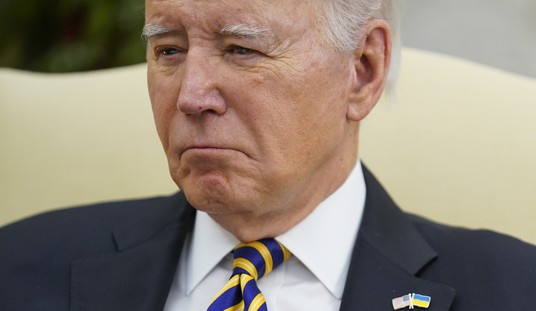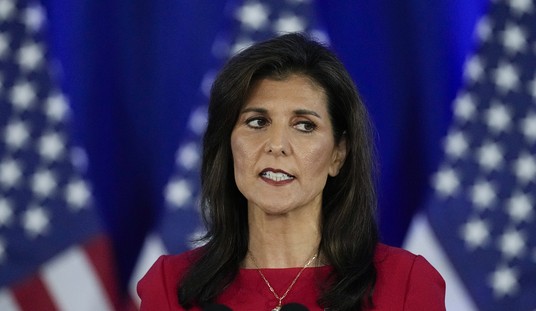Everyone knows about the GOP civil war that’s been raging for several years — anti-Washington conservatives vs. the Establishment.
But the debate over the repeal and replacing of Obamacare has exposed a civil war within the civil war: Trump conservatives vs. the hard right.
Conservatives supporting Donald Trump want to implement the president’s agenda of border security, tax reform, more funds for the military, and infrastructure spending. But the hard right, ideological purists of the Freedom Caucus and Republican Study Committee, won’t support funding any of those presidential priorities unless there are offsets to the budget that pay for the additional spending.
And the moderates who don’t call themselves moderates of the Tuesday Group are now saying they won’t even meet with conservatives to iron out differences on the health care bill.
The centrist Tuesday Group affirmed at a meeting Wednesday that it will not meet with the conservative House Freedom Caucus to negotiate changes to an ObamaCare replacement bill, according to Rep. Chris Collins (R-N.Y.).
“I am not speaking for the White House; I’m not speaking for the Speaker; but I will speak for the Tuesday Group,” Collins, a member of the group, told reporters. “We have never negotiated with the Freedom Caucus. There was never a meeting scheduled with the Freedom Caucus. We will never meet with the Freedom Caucus, because it’s not appropriate for a group of ad hoc members.”
“It’s not regular order, that’s not our role,” Collins added. He said the regular healthcare committees should handle the issue.
He said the Tuesday Group had a meeting on Wednesday and he can state “unequivocally” that other members of the group agree they should not meet with the Freedom Caucus.
It goes without saying that “ad hoc” group or not, the Tuesday Group is at war with conservatives over just about everything.
With all these divisions in the party and the success of his agenda at stake, you would think that President Trump might look to try and build bridges between factions in the House and Senate. But any attempt to unify the party won’t be coming from the White House.
President Donald Trump took aim at the Freedom Caucus this morning in a tweet, saying that it will do damage to the Republican Party.
Members of the hardline caucus largely opposed the health care bill last week, one of the factors that led GOP leaders to postpone a House vote on the measure last Friday.
“The Freedom Caucus will hurt the entire Republican agenda if they don’t get on the team, & fast. We must fight them, & Dems, in 2018!” Trump tweeted this morning.
“The president’s tweet speaks for itself. We don’t have anything to add at this time,” according to Sarah Huckabee Sanders, White House principal deputy press secretary.
Last week, press secretary Sean Spicer would not explicitly state whether the president would campaign against those who didn’t support the health care bill.
This is not the first time that Trump has singled out the group. He addressed the faction on social media two days after the bill was shelved.
“Democrats are smiling in D.C. that the Freedom Caucus, with the help of Club For Growth and Heritage, have saved Planned Parenthood & Ocare!” he wrote on March 26.
Members of the caucus largely dismissed Trump’s thinly-veiled threats to challenge their reelection campaigns in 2018.
“I mean it’s constructive in 5th grade,” Rep. Justin Amash, R-Mich., a founding member of the House Freedom Caucus, sarcastically told reporters at the Capitol today when asked if the president’s pressure could be a tactic to reignite negotiations.
Amash upped the ante in his war against the White House today, accusing the president of succumbing to the D.C. establishment.
It didn't take long for the swamp to drain @realDonaldTrump. No shame, Mr. President. Almost everyone succumbs to the D.C. Establishment. https://t.co/9bDo8yzH7I
— Justin Amash (@justinamash) March 30, 2017
Rep. Thomas Massie also accused Trump of being part of the “swamp”:
.@realDonaldTrump it's a swamp not a hot tub. We both came here to drain it. #SwampCare polls 17%. Sad! https://t.co/4kjygV2tdS
— Thomas Massie (@RepThomasMassie) March 30, 2017
Are Freedom Caucus members whistling past the graveyard or do they really have nothing to worry about?
Most conservatives in the House won their 2016 races by more than 55%. This is considered “safe” by most political bean counters. In fact, many of the Freedom Caucus members garnered 60% or 70% of the vote. Some ran unopposed.
It would be a tall order for President Trump to find enough primary challengers with the money and name recognition to take on an incumbent congressman who won 70% of the vote in 2016. It would be easier for Trump to undermine their candidacies to give a Democratic challenger a shot at unseating them.
Presuming that the president isn’t a lunatic, he’s not going to do that. So his choices are stark. He can 1) continue to berate, insult, and criticize his right wing opponents hoping they will see the error of their ways and come around to support his agenda; or 2) build bridges, open direct lines of communication, and truly listen to his GOP opponents’ concerns.
The president needs to acquire the foresight to see that unless there is a sea change in attitude in Congress, none of his initiatives are going anywhere. He needs 217 votes to get anything passed and it is extremely unlikely any of those votes are coming from Democrats. The Dems are terrified of even giving the appearance of supporting the president, what with their frothing-at-the-mouth base on the warpath. Trump may believe the Dems want to reform Obamacare as much as he does, but the cost would certainly be too high.
All new presidents have illusions that they are more powerful than they actually are. Once Trump comes back down to earth and realizes the task ahead will require more GOP unity than has been demonstrated so far in his term, he will almost certainly lay off the threats and start working to bring Republicans together.









Join the conversation as a VIP Member